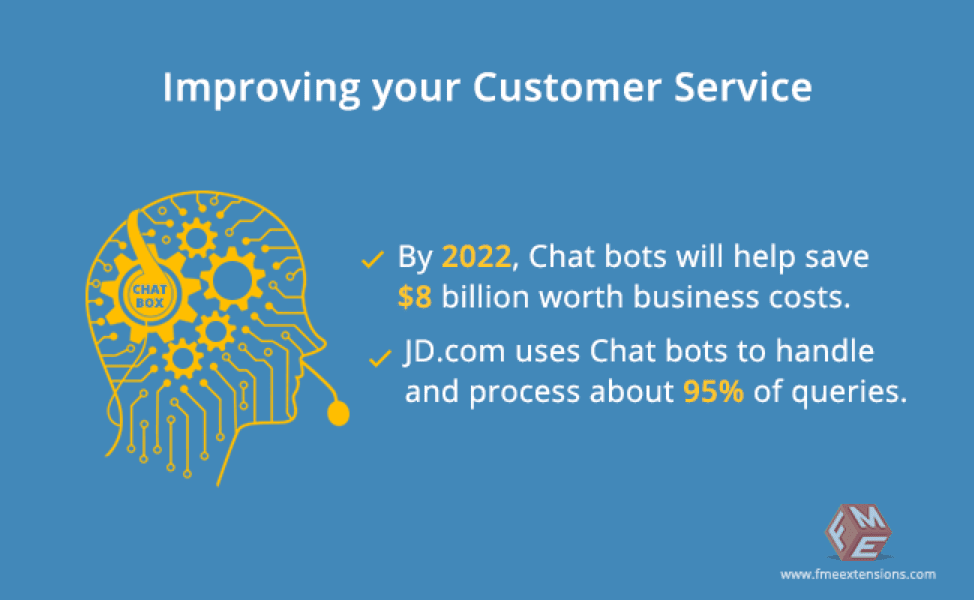AI has enabled online merchants to automate tasks with much more accuracy and efficiency, making it an indispensable asset to their business model
From self-driving cars and voice-operated appliances to machine learning tools and smart virtual assistants, Artificial Intelligence (AI) has a bearing on everything. While the e-commerce market has remained subject to numerous technological interventions in the past, AI has had the biggest impact so far.
AI’s influence on online businesses has been the most significant development for e-commerce in recent years. Through AI applications, the e-commerce industry has progressed in leaps, allowing online merchants to reduce the costs associated with marketing, administrative, and management. Moreover, AI has enabled online merchants to automate tasks with much more accuracy and efficiency, making it an indispensable asset to their business model.
According to industry experts, AI will rank in the top five investment priorities for more than 20% of CIOs by 2020. From its current progress, experts believe the AI juggernaut will reach revenues of $60 billion by 2025.
Voice search
Among its most promised applications is voice search. Voice search is now dominating online search trends, accounting for 20% of searches made on mobile phones alone. According to statistics shared by Google, a fifth of people with smartphones use voice search to complete their queries.
In a survey last year, it was found that 58% of consumers have used voice search to find local business information from Google. With its growing use, online business analysts predict that by 2020 50% of all online searches will be made through voice notes and images. One of the most popular AI-based products are Virtual Personal Assistant (VPA) enabled speakers. VPA-enabled speakers have experienced an enormous surge in worldwide sales, which are expected to reach $2.1 billion by the next year.
Chatbots

Similarly, chatbots are commonly used by e-commerce websites, empowering merchants to streamline their information, customer care and support tasks with self-learning bots that generate unique conversations when interacting with customers.
A recent survey revealed that deployment of chatbots in e-commerce websites would help save $8 billion worth of business costs by 2022. Understanding the competitive advantage chatbots have in e-commerce, JD.com a leading Chinese B2C online retailer openly uses chatbots to handle and process 95% of their queries.
Social media
Another sector where AI has a significant role is Social Media. Through the course of the last few years, AI made a much deeper and stronger presence in Social Media platforms. Soon after Google’s acquisition of DeepMind, IT giants such as Facebook followed the trend and have since invested immensely to explore new possibilities pertaining to AI.
Last year Facebook announced plans to invest $11.6 million in its AI centre in Paris to expand its operations and to make data available to the public across France. Digital marketers use this data to keep track of trends and learn about consumer preferences. Recent studies show 3.2 billion visual shares are made through social media daily.
Sales forecasting
AI is also being used in sales forecasting. AI’s recent adoption by leading online brands showed remarkable results in predicting outcomes for different types of marketing and sales campaigns. Since then, its success has attracted many e-commerce companies to integrate AI applications in their marketing and sales models.
Walmart, an American multinational retail corporation uses AI for sales prediction. In its recent operations, Walmart observed 10% to 15% increment in online sales for $1 billion through AI sales forecasting. Rakuten, a leading Japanese e-commerce and internet company also uses AI for sales forecasting. Rakuten was able to analyze their 200 million products for sales forecasting using AI applications.
Although AI and Machine learning have a long journey ahead, their applications are rapidly mainstreaming in different social and business aspects of our life. Scroll down the infographic below to see the wonders of AI in e-commerce.

Infographic by – Fme Extensions